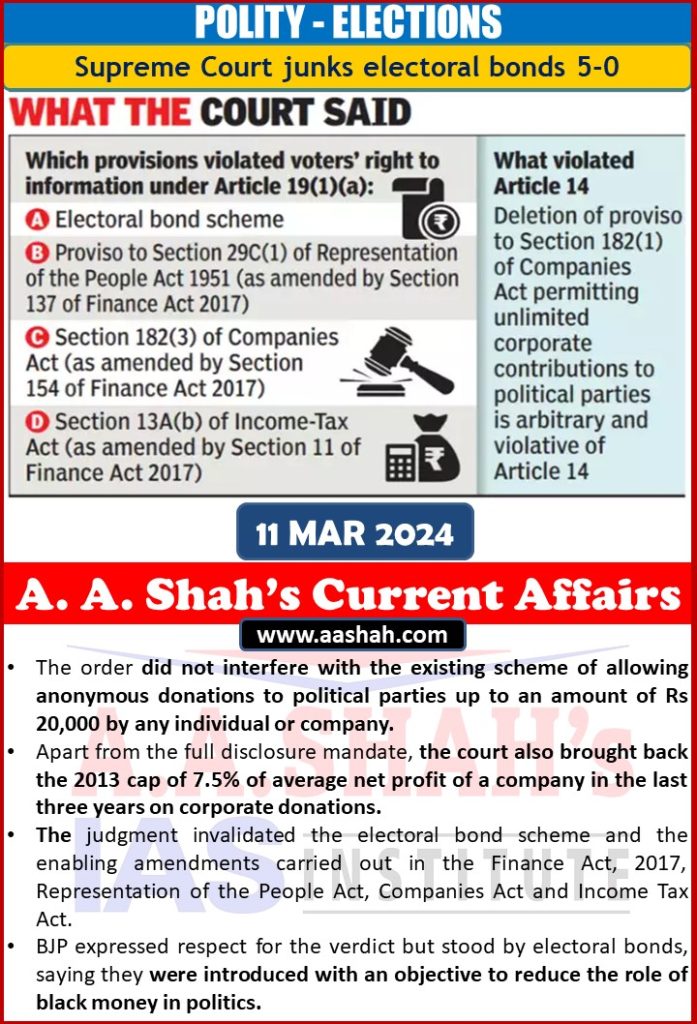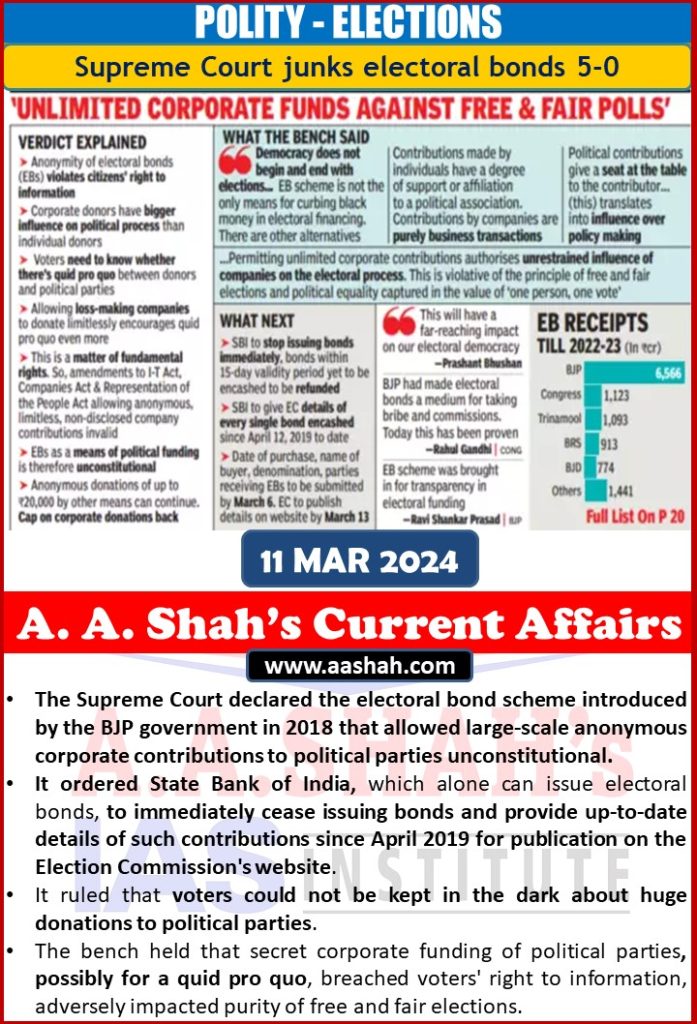
•The order did not interfere with the existing scheme of allowing anonymous donations to political parties up to an amount of Rs 20,000 by any individual or company.
•Apart from the full disclosure mandate, the court also brought back the 2013 cap of 7.5% of average net profit of a company in the last three years on corporate donations.
•The judgment invalidated the electoral bond scheme and the enabling amendments carried out in the Finance Act, 2017, Representation of the People Act, Companies Act and Income Tax Act.
•BJP expressed respect for the verdict but stood by electoral bonds, saying they were introduced with an objective to reduce the role of black money in politics.

•The Supreme Court declared the electoral bond scheme introduced by the BJP government in 2018 that allowed large-scale anonymous corporate contributions to political parties unconstitutional.
•It ordered State Bank of India, which alone can issue electoral bonds, to immediately cease issuing bonds and provide up-to-date details of such contributions since April 2019 for publication on the Election Commission’s website.
•It ruled that voters could not be kept in the dark about huge donations to political parties.
•The bench held that secret corporate funding of political parties, possibly for a quid pro quo, breached voters’ right to information, adversely impacted purity of free and fair elections.
